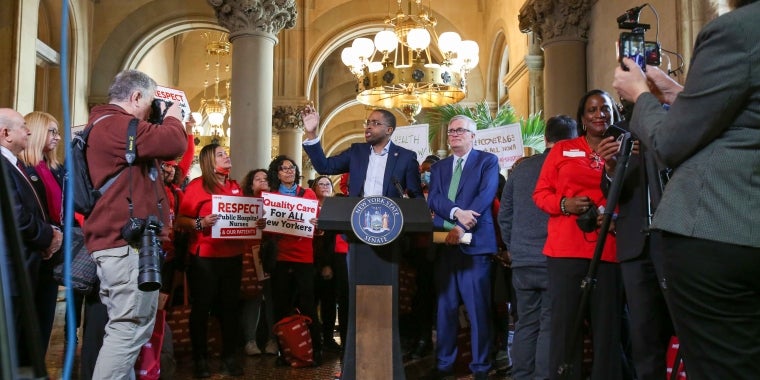
Senator Myrie's Ban on Campaign Contributions by Vendors Passes
June 7, 2021
ALBANY— The New York State Senate today unanimously passed a bill by Senator Zellnor Y. Myrie (D-Brooklyn) which would prohibit campaign contributions by individuals or entities seeking State contracts. The legislation would establish a "restricted vendor contribution period" blocking political donations to officials with authority over the procuring entity immediately before or during an active RFP and for six months after winning a contract.
"As public officials, we must safeguard the public's trust, protect scarce tax dollars and avoid even the appearance of impropriety when awarding valuable state contracts," said Senator Myrie. "Vendors seeking business opportunities with the State, or those who have recently been awarded a contract, must be evaluated based on the quality of their work, their value to taxpayers and the merits of their bid— and no other factors. New Yorkers must have confidence that public resources are allocated without favor."
The bill would block vendors or prospective vendors from making campaign contributions to any officeholder with authority over the state governmental entity issuing a procurement posting
or solicitation, evaluating responses, approving or selecting the awardee, or awarding the final contract. Under the legislation, the restricted period would start when a bid or RFP is released or posted, continue while the decision is pending, and for six months following the contract award and approval by any state governmental agency. The prohibition would extend to any officeholder or candidate of a state government entity including the Senate or Assembly.
"Whether providing healthcare to our most vulnerable residents, ensuring the soundness of a bridge or preserving and expanding mass transit, State vendors deliver critical services across New York at a significant cost in precious taxpayer dollars," added Senator Myrie. "Public officials, vendors and taxpayers alike should welcome legislation that will remove any questions about improper use of taxpayer funds and strengthen confidence in our government."
Share this Article or Press Release
Newsroom
Go to Newsroom
Myrie PMPA
March 2, 2023


